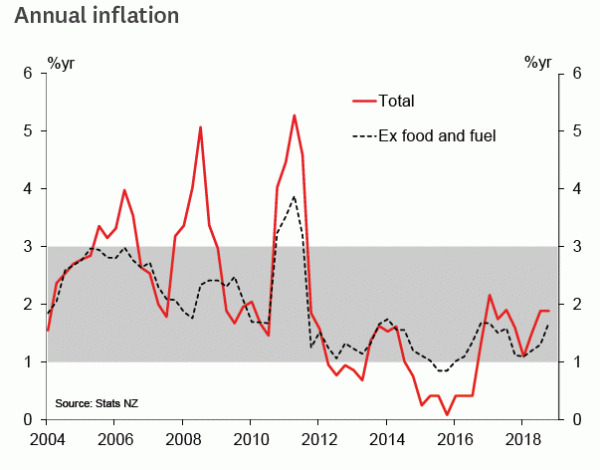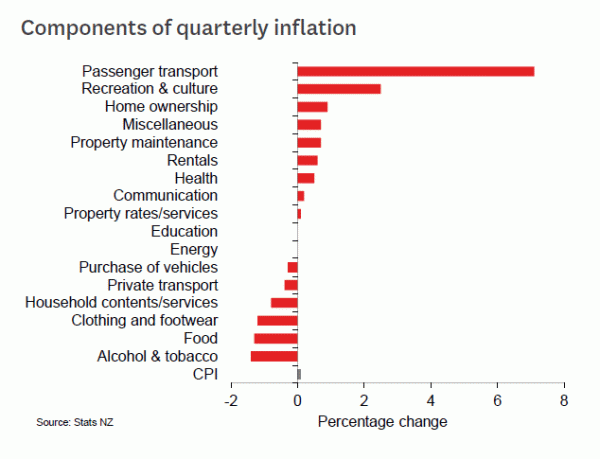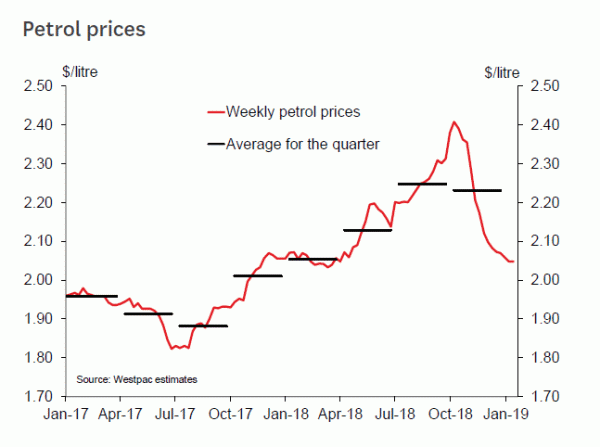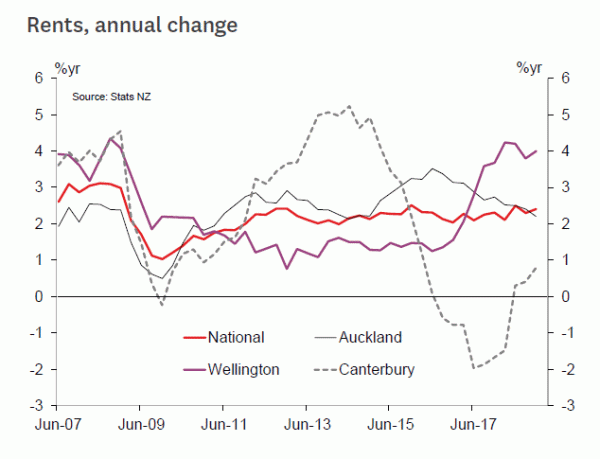- The Consumer Price Index (CPI) rose by 0.1% in the December quarter, maintaining the annual inflation rate at 1.9%.
- A sharp fall in fuel prices has taken some of the pressure off headline inflation in the near term.
- However, locally-generated inflation pressures have been stronger than the Reserve Bank forecast.
- We expect a gradual pick-up in inflation over the next few years, though it will be some time before the RBNZ needs to respond with higher interest rates.
Today’s CPI release provided more evidence that the era of uncomfortably low inflation has passed. Annual inflation is now tracking close to the 2% midpoint of the Reserve Bank’s target range, and domestically-driven inflation pressures have tended to be stronger than the RBNZ’s forecasts in recent quarters. That said, inflation has yet to test the upper end of the RBNZ’s target range, meaning that the need for interest rate hikes is still some time away.
Consumer prices rose 0.1% in the December quarter, which was in line with our forecast. The December quarter result is typically on the low side, reflecting the balance of seasonal factors – in particular, a 21% drop in vegetable prices from their winter peaks. This group alone outweighed the gains in airfares, car rentals and accommodation during the peak tourism period. In seasonally adjusted terms, the CPI rose by 0.4% in the December quarter, a similar pace to previous quarters.
While the headline result was a bit below the 0.2% that the RBNZ estimated in its November Monetary Policy Statement, that hides some important detail. Petrol prices fell sharply over the course of the December quarter, with much of the decline occurring after the RBNZ had prepared its forecast. As a result, the 0.4% decline in tradables prices was softer than the RBNZ’s forecast of -0.1%.
Petrol wasn’t actually much of a feature in today’s release – the average over the December quarter was only slightly lower than in the September quarter. However, it will have a substantial dampening effect on the March quarter outturn, with petrol prices starting the year about 8% below the December quarter average. Consequently, headline inflation is likely to dip lower again in the next couple of quarters, but the RBNZ is able to look through this shortterm effect.
Setting aside fuel prices, tradables inflation has remained subdued. However, there were signs of a mild pick-up in the latest quarter, reflecting the lower New Zealand dollar over the last year. The exchange rate tends to have a lagged impact on the prices of imported goods, so we expect to see a further modest lift in tradables inflation this year. In contrast to tradables, prices for non-tradable goods and services outstripped the RBNZ’s forecast (and in fact have done so for the last six quarters). The 0.7% gain for the quarter lifted the annual rate of increase to 2.7%, which was the highest since June 2014.
We expect non-tradables inflation to accelerate further over the coming years. The tightening labour market, along with some government-mandated pay increases, are expected to lead to an acceleration in wage costs. Firms are reporting greater cost pressures, and will be looking to pass this on to consumers over time.
Even so, we think that the rise in non-tradables inflation will be gradual – the reason being that some of the most significant components aren’t linked to labour costs at all. Rents make up nearly 10% of the CPI, and they yet to show any acceleration in recent years at a national level. Within that, there are some regional variations – growth in rents is actually slowing in Auckland, even as it picks up in other parts of the country.
It’s worth noting that from the June 2019 quarter Stats NZ will be introducing a new method of measuring rental prices in the CPI. The new method tends to produce a faster pace of rental price growth over history compared to the existing method, though the change is unlikely to have a meaningful impact on the future pace of inflation as a whole. Also on the housing front, price increases for newly-built homes have actually slowed from their peaks over the last couple of years, in line with the slowdown in house sale prices. With a range of Government policies aimed at dampening speculative demand in the housing market, we expect prices for both existing and new homes to remain subdued over the next few years.




